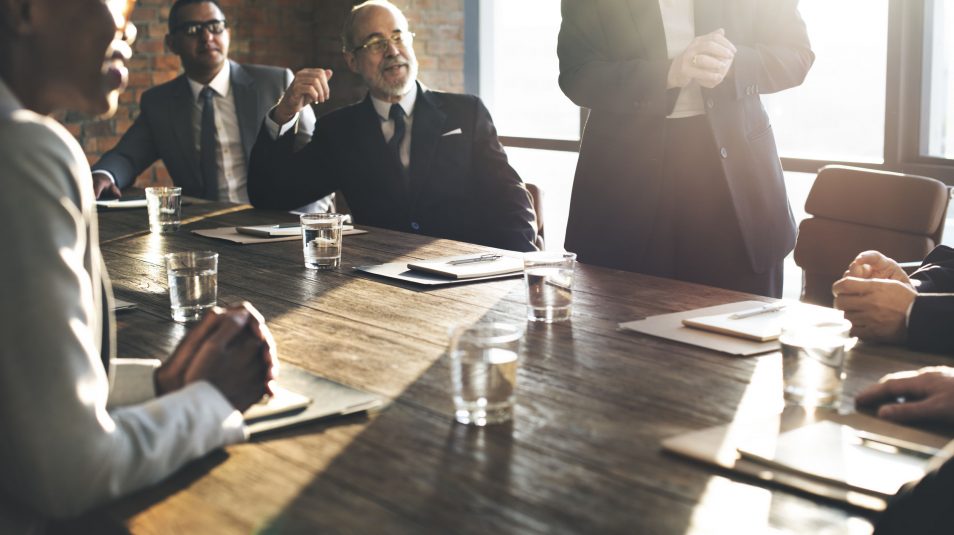The Five Greatest Qualities Of An Effective Event Facilitator

Team Dynamics
March 25, 2015
Sean Glaze
Teamwork Speaker and Team Building Facilitator
Topics
Event Planning, Management, Team BuildingIf you are searching for an effective event facilitator to help with any group productivity meeting, there are a number of things you should consider.
A strong facilitator will discuss goals with the meeting planner and have a thorough understanding of the meeting’s purpose prior to his or her arrival. It is vital that the facilitator understands expectations.
He or she will also be skilled enough to create a feeling of safety and trust in order to foster more honest and productive communication throughout the event, and establish effective ground rules for productive feedback during the event.
But as much as each of those items can impact your event, they are not the MOST important or the greatest qualities of an effective event facilitator.
If you want to ensure the success of your leadership development or team building event, there are five specific things that an outstanding facilitator will do:
- Find Ways To Include All Members - Many team building facilitators will use the term challenge by choice, which means that participants can choose to include themselves or simply observe. That is important, but even when people choose to observe early on in a program, a successful facilitator will find ways to involve them as well – either by asking for their input as an observer to provide insights on the activity, or by providing activities that are so enjoyable and relevant that people who at first hesitate to join the group eventually jump in with both feet.
- Stimulate Creativity & Improved Awareness - People have two fears when it comes to group dynamics – the fear of rejection and fear of embarrassment. Great facilitators will provide a safe and encouraging space for people to share ideas and let down their hair long enough to laugh together and then discuss issues. The key is to convince your group that it’s not just okay to expand our awareness and challenge assumptions, it’s incredibly productive and profitable to collaborate and share information and ideas.
- Encourage Conversations & Embrace Conflict - Producing quality, productive interactions is the key to any successful program, and sometimes growth requires temporary discomfort. At times, your group may need to address issues that cause conflict to become more productive. Always remember that conflict is sometimes necessary, but combat is not. It is your group’s diversity of perspectives that provides the strength of your team and a strong facilitator will maintain focus while helping to draw out and explore disagreements.
- Summarize Insights & Key Take-Aways - After each of the activities are completed, an effective facilitator will debrief the experience with your group to ensure that it is not only having fun, but it is making progress toward improved interactions and productivity. A skilled and effective facilitator will use these conversations to turn the enjoyable ha-ha's into interesting and unexpected a-ha’s, and then will review and summarize the lessons to help your people internalize and apply them.
- Create Actionable Next Step Plans - Finally, after all of the fun and challenging event activities are completed, and the magical debriefing discussions have been had, an effective facilitator will end your workshop or retreat event with one very powerful exercise – a call to action. Just as an advertisement asks an audience to do something different to improve, a good facilitator will finish by asking your people to review what they have learned during the time together. And then they will ask for each participant to write down one thing that he or she will do differently as a result of the improved awareness that the event provided.
There are many qualities that an effective facilitator must have to make your event worthwhile and memorable, but those five are certainly at the top of the list. Be sure that your team building events are led by someone who can ensure the experience is valuable for everyone involved.
You want someone who can inspire candid conversations that will move your team forward. You want someone who will be prepared and understand your situation and needs well enough to keep people focused. You want someone who is energizing and engaging that can keep their attention from wandering.
There are a great many terrific and talented facilitators who will help you to make your next event a success. When you are planning an event, take the time to ask questions and check on references so that you get the greatest facilitator you can – it truly makes a difference in the quality and impact of your next meeting.







These steps are so clear. Thank you so much.
Hi, Sean – excellent post:)
Number 4 about capturing and summarizing key points really resonated with me. I have too often seen otherwise good presentations go south when this step is ignored or mishandled.
This is one of the reasons why I like the use of digital tools to capture thoughts, rather than easel pads. I grew up (literally) writing on easel pads and have developed a comfortable and legible style with recording things on them. Not everyone does so.
I once was required by Higher Authority to copy and distribute the summary easel pad pages from 10 groups of 5 to 7 people each. Many of these sheets were barely legible and the value of putting them in people’s hands seemed minimal.
I have also experienced recording the same type of report outs from groups on a laptop hooked up to a data projector. As long as the person recording makes sure to validate their version of what is being said, this produces much more usable and clear information.
Very good post – the information is right on:)
John